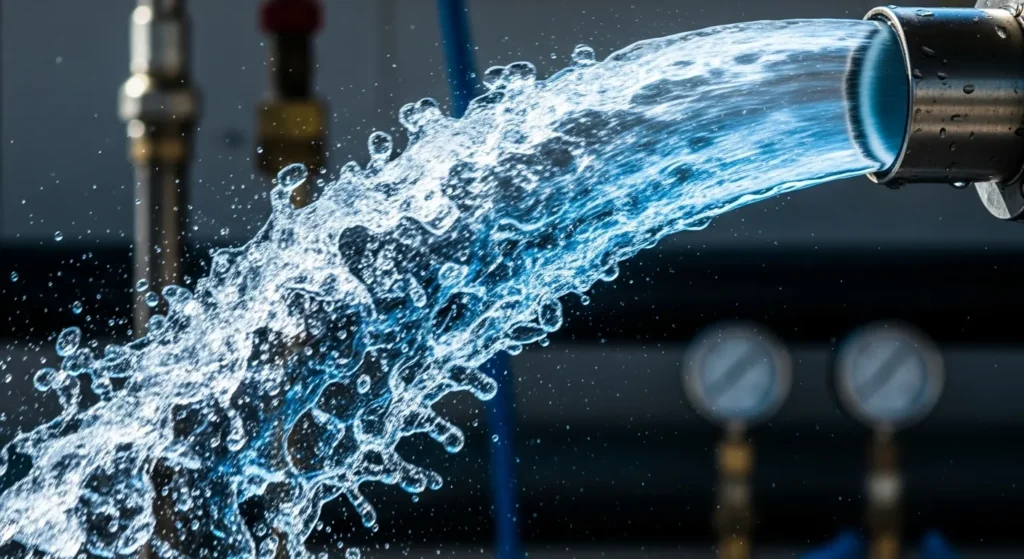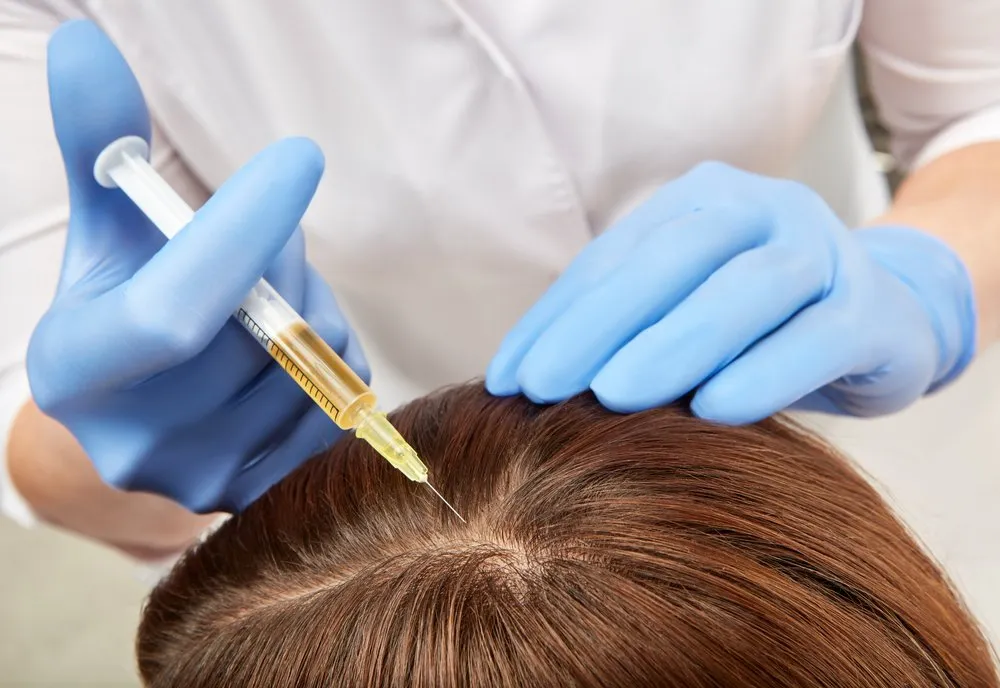Noticing more hair shedding after a shower? You’re not alone. Many wonder: Can water pressure affect hair loss? While it may seem like a minor detail, the force of water hitting your scalp could contribute to hair breakage and damage, especially if other factors are at play.
In this guide, you’ll learn how water pressure interacts with your hair health, what experts say, and how to protect your strands without overhauling your routine.
Understanding the Connection Between Water Pressure and Hair Health
What is Water Pressure?

Water pressure refers to the force at which water is delivered through your showerhead. It’s typically measured in pounds per square inch (psi). Most homes maintain a water pressure between 40 to 60 psi, but some exceed this, especially in urban settings or with power showers.
How Water Pressure Affects Your Scalp and Hair Shaft
While hair strands may seem strong, they’re surprisingly fragile when wet. High-pressure water can:
- Causes mechanical stress to the hair shaft
- Loosen weakened hair follicles
- Erode natural oils from the scalp, leading to dryness and irritation
Myth vs. Reality: Does High Water Pressure Cause Hair to Fall Out?
The good news? Water pressure alone doesn’t cause permanent hair loss. However, it can contribute to hair breakage, which may appear as shedding. If you’re already experiencing thinning, high-pressure showers could worsen the visual effects.
Mechanical Stress and Hair Breakage
How Strong Water Flow Can Weaken Hair Strands Over Time
High-pressure water acts almost like a mini massage gun on your scalp. Over time, this can:
- Stretch and break vulnerable strands
- Aggravate hair already weakened by styling, coloring, or medical conditions
- Increase daily breakage rates, especially during washing or towel-drying
Is Hair Fall During Showering Normal?
Yes, it’s normal to lose 50 to 100 hairs a day, and many fall during shampooing or rinsing. But if you’re losing clumps or noticing thinning, it’s worth investigating.
Factors That Amplify Damage
- Wet hair = fragile hair
- Rough towel drying + high water pressure = double trauma
- Brushing immediately after showering
- Tying wet hair tightly
Pro Tip: Use a wide-toothed comb and let hair air-dry when possible.
Water Quality vs. Water Pressure: Which Matters More?
Hard Water and Mineral Buildup on the Scalp
Hard water contains minerals like calcium and magnesium. Over time, these deposits on the scalp and:
- Clog hair follicles
- Dry out hair shafts
- Weaken root strength
Chlorine and Its Drying Effect on Hair
Municipal water often contains chlorine, a chemical that strips natural oils from both skin and hair. Combine this with high pressure, and your hair becomes vulnerable to:
- Split ends
- Breakage
- Scalp irritation
High Pressure + Poor Quality = Double Damage
While water pressure may not directly cause hair loss, when paired with hard or chlorinated water, the risk of visible hair damage increases significantly.
What Dermatologists and Trichologists Say
Is There Clinical Evidence Linking Water Pressure to Hair Loss?
There are limited direct studies, but mechanical trauma is a recognized factor in traction alopecia, a type of hair loss caused by continuous pulling or tension. According to trichologists, strong water jets can mimic this effect on already weakened hair.
Real People, Real Concerns: Experiences With High-Pressure Showers
Anecdotal Cases from Forums or Reddit
Users on platforms like Reddit report:
- Increased hair shedding with power showers
- Relief after switching to gentle flow showerheads
- Visible scalp improvement after using filters
Common Complaints and Patterns
- “Hair feels rough or straw-like after every wash.”
- “I see more hair in the drain after switching homes.”
- “My scalp gets itchy or tight post-shower.”
When to Be Concerned About Excessive Shedding
If you notice:
- Persistent clumps of hair loss
- A receding hairline or widening part
- Scalp sensitivity or irritation
… It may be time to consult a specialist.
Tips to Protect Your Hair While Showering
Ideal Water Pressure for a Gentle Rinse
Aim for a moderate water pressure — around 45 psi is typically safe for scalp health.
Showerhead Filters and Pressure Regulators
- Install a shower filter to remove chlorine and minerals
- Use pressure-reducing valves or eco showerheads
- Avoid “power shower” settings
Best Practices: Water Temperature, Combining, Drying
- Use lukewarm water, not hot
- Pat dry with a microfiber towel
- Avoid brushing wet hair
- Apply leave-in conditioner or hair serum post-shower
Scalp Massage Techniques to Boost Circulation Safely
Instead of relying on water pressure, use gentle fingertip massages:
- Boost blood flow
- Stimulate follicle health
- Relieve scalp tension
When Hair Loss Is More Than Water Pressure
Common Medical Causes of Hair Loss
- Androgenetic alopecia (male/female pattern baldness)
- Telogen effluvium (stress or illness-related)
- Alopecia areata
- Thyroid or iron deficiencies
When to See a Dermatologist or Hair Loss Expert
If your hair loss is:
- Sudden
- Patchy
- Accompanied by redness, bumps, or inflammation
…book a professional evaluation.
Diagnostic Tests and Treatment Options Available
- Scalp examination
- Blood tests (thyroid, ferritin)
- Trichoscopy
- Treatments: PRP, minoxidil, hair transplant, mesotherapy

Frequently Asked Questions (FAQs)
Can hard water with high pressure cause hair thinning?
Yes, the combo can lead to buildup and increased breakage, worsening visible thinning.
Should I lower my water pressure if I’m losing hair?
Yes, especially if you notice excessive shedding during showers.
How do I know if my shower is damaging my hair?
Look for signs like dryness, breakage, or clumps of hair in the drain.
Can high-pressure water damage hair follicles?
Not permanently, but it can stress follicles if the scalp is already inflamed or weakened.
What kind of showerhead is best for hair?
Use a filtered, low-pressure, wide-spray showerhead designed for gentle rinsing.
Should You Worry About Water Pressure and Hair Loss?
Water pressure alone isn’t a root cause of permanent hair loss, but it can worsen shedding and breakage when combined with other risk factors. If you’re concerned, consider adjusting your shower habits, upgrading your equipment, and speaking with a professional to rule out underlying causes.
Concerned about your hair thinning or scalp health? Book a personalized consultation with Dr. Rana Irfan, an ABHRS-certified hair restoration expert in Islamabad. From diagnosis to advanced treatments like PRP and FUE transplants, you’re in trusted hands.
